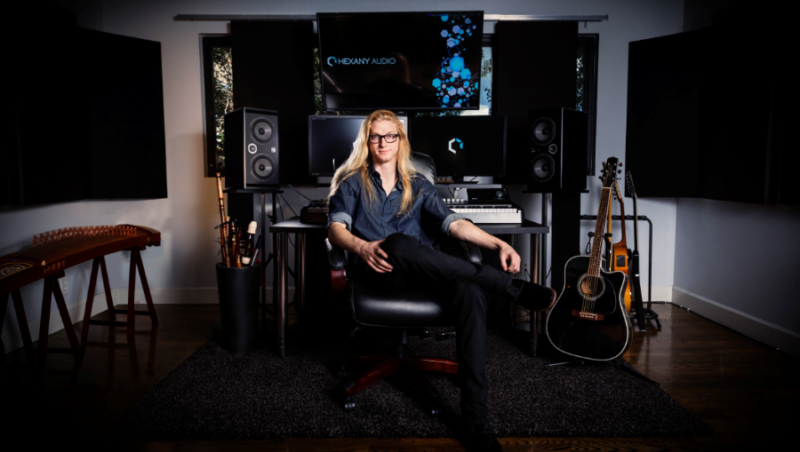
For almost 50 years now, the Star Trek universe has been entertaining audiences. Not only on the big and small screens, but also behind consoles. The first Star Trek video game to be released was Microvision’s Star Trek: Phaser Strike by Milton Bradley in 1979 and coincided with Star Trek: The Motion Picture. Since then, countless other games including Star Trek: Invasion, Star Trek: Legacy, Star Trek: Bridge Crew have been released, with the latest being Star Trek: Dark Remnant by VRstudios and development partner Strange Reptile for Dave & Buster’s.
Star Trek: Dark Remnant is a VR experience that puts you in control of the U.S.S. Galileo, Starfleet’s latest and most advanced stellar research vessel, accompanying the U.S.S. Enterprise on a routine mission to evacuate a stellar observatory located in the middle of the Klingon Neutral Zone and learn more about the decaying neutron star it orbits. When the neutron star collapses prematurely it leaves the Enterprise incapacitated. It’s now up to YOU to protect her from stellar debris – and the unwelcome arrival of a Klingon ship out for vengeance.
There are many elements that contribute to heightening the player’s overall gaming experience, one of those being the score. Composer Matthew Carl Earl of Hexany Audio, whose other credits include Tencent’s Arena of Valor and Moonlight Blade to name a few, was tasked with bringing Star Trek: Dark Remnant to life musically. In the below interview he discusses this creative process and much more.
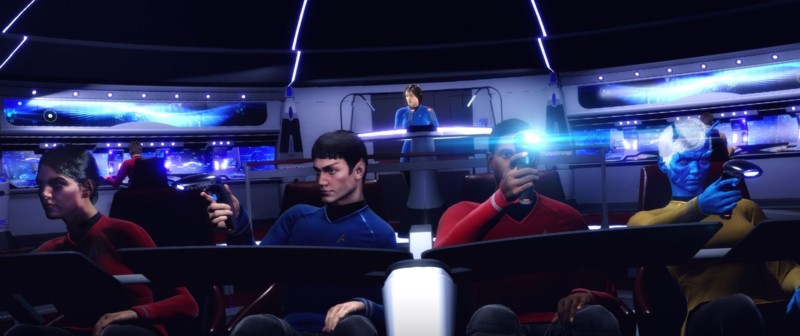
-How did you get involved with Star Trek Dark Remnant?
M: Our studio Hexany Audio was brought in by VRstudios who produced the game in collaboration with Strange Reptile and Dave & Busters to help out with the audio needs for the project. We have worked on many projects together with VRstudios in the past, so it was awesome for them to come back to us with something as cool as Star Trek!
-What sort of directions were given to you about the score?
M: Honestly, I was given a lot of freedom to do what I wanted with the music as long as I stayed within the bounds of the Star Trek universe. Before I set out to write the music we discussed the most important moments to hit with classic Star Trek themes, as well as the different endings the player can get. So I had a fairly clear plan in mind before starting.
-How did you go about honoring Michael Giacchino’s score, while offering your own take on the project?
M: When I was first tasked with writing the music the first thing I did was listen to A TON of Star Trek music, even back to the old Jerry Goldsmith music. I wanted to live and breathe Star Trek music for a while so that my new musical ideas would naturally have the iconic Star Trek sound. For me, if I have to force myself into a genre, it doesn’t sound authentic. I have to let it come naturally.
After imbuing myself in the sonic palate for a while, I took Giacchino’s main theme and did my best to weave it throughout the score in the moments that would feel the most impactful. Michael is such a fantastic melody writer and it’s a huge honor to be able to use some of his music as a part of my own. So much fun!
-There are many different endings possible for the game, along with other elements of variability. About how much music did you create for the game?
M: With the different endings, probably around 9-10 minutes. The experience is give or take, about 5 1/2 minutes long each play-through. With each ending being around 1 minute long, and then the main theme is about 1.5 minutes during the preparation stage.
-Being that Star Trek is already a huge franchise, did that add any pressure to you about creating the perfect score for this?
M: There was absolutely pressure haha. I was both super nervous and super excited, but once I began working, my nerves started to go away and it was just a total blast! I spent a long time on my piano sketches, really trying to nail the harmonic sound, before beginning to orchestrate. That way I didn’t spend too much time writing, only to realize I’m totally missing the goal haha.
-What did you do to prepare for this project? Did you go back and watch any of the previous Star Treks?
M: Of course, plus reading a ton of the lore online, but I think the biggest part of preparation was just listening to all of the film and tv soundtracks on repeat for about a week before writing a single note. I wanted my brain to only think in this style of music. I actually also turned to a lot of my favorite 20th century classical composers like Holst and Bartok for inspiration as well, as much of the music in this time period is very closely related to the Star Trek style.
-How different is it to score a VR game, than a regular game such as Arena of Valor?
M: The main difference I pay attention to between VR games and a traditional game is the fact that the music in VR must be much more immersive, and when you think about it, the musical palate in Star Trek isn’t very “background” sounding… It’s very in your face and bombastic, which I totally love! But, there is a bit of massaging required and focusing mainly on textural music instead of totally in your face music to get it to sit well in a VR setting.
We wanted the music to serve as an emotional undercurrent that really makes you feel a part of the ship’s crew instead of a soundtrack playing on top of the experience.
-What was your favorite part of working on this game?
M: My favorite part is definitely working in the style of Star Trek music. It’s not often I get to write in this style. Using nasty chords, experimental harmony, and impressionistic textures using only the orchestra… It’s just too much fun!
I got to the point where I would write a melody or chord progression and then think to myself, “cool, now lets harmonize it down a major 7th in the basses and see where that gets me…” Really trying to just push things into outer-space!
Learn more about Matthew here: https://matthewcarlearl.com/
I have always enjoyed playing video games and am a programming team lead for a video game company. I co-founded Gaming Cypher because I enjoy the gaming community and would like to provide the best news service around. Feel free to ask me any questions and I will make sure to get back to you quickly.

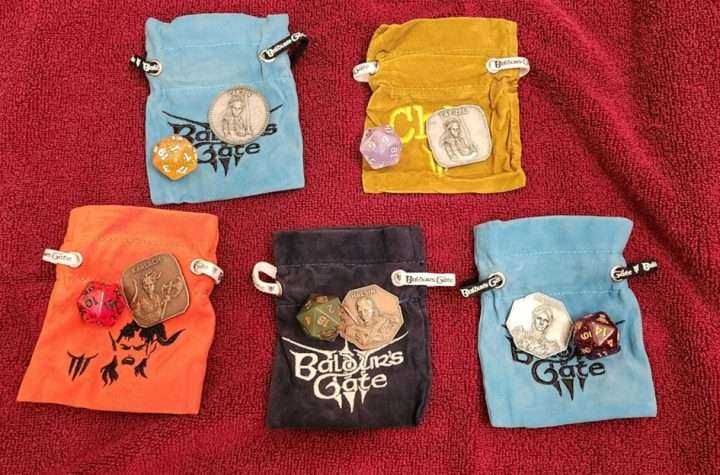
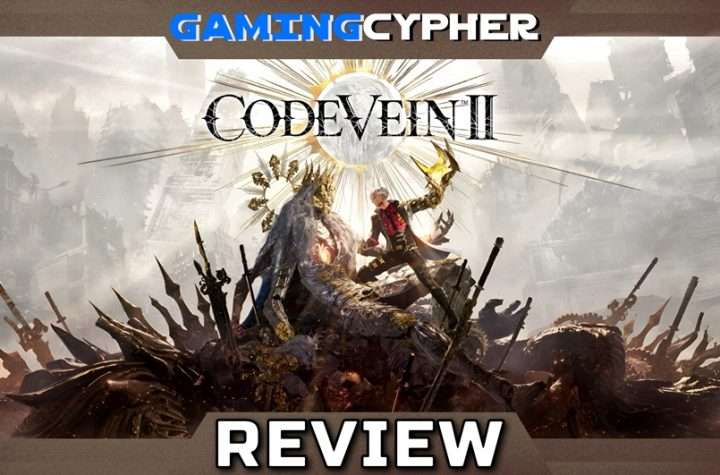

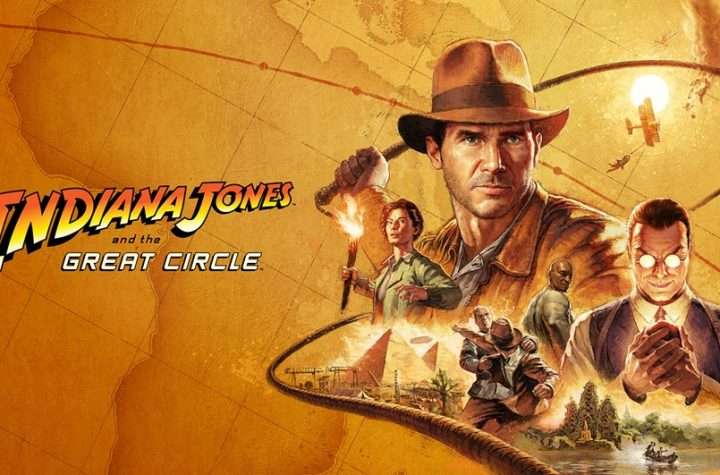
More Stories
Halloween Comes to GORN 2 with Fight of the Living Dead Update
PAX East 2025 Day 1 Impressions: Tunnels VR
Eldramoor: Haven in the Mist Fantasy VR MMORPG Launching Soon on Kickstarter